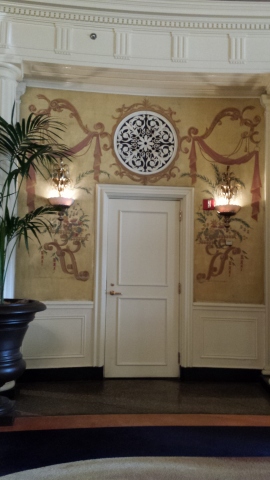 By Linda Fisher Thornton
By Linda Fisher Thornton
I was asked recently to explain in simple terms how ethics and trust are related. It is a great question, because we define trust and ethics in so many different ways.
Here are some observations about how trust and ethics are related, and what their relationship means for us as organizational leaders.
What is the Relationship Between Ethics and Trust?
Proactive ethics is part of what it takes to build trust.
Building trust is part of what is required to maintain good ethics.
Ethical behavior and choices help build trust.
High trust environments encourage better ethics.
When trust is lost, people are less likely to uphold the organization’s ethics.
When ethics is absent, trust is elusive.
⋅
The Positive Balance
What does all of this mean to us as leaders? It means that ethics and trust are reciprocal and mutually reinforcing. Improving one improves the other. Damaging one damages the other.
Ethics and trust are reciprocal. They are mutually reinforcing.
If we lead in ways that are trustworthy, we are fulfilling an important part of our responsibility as ethical leaders. When it comes to leading ethically, trust is not a nice-to-have, it’s a “must have.” If we lead ethically, that lets people know they can count on us, and being able to count on us builds trust with individuals and within the group.
Ethics and trust are inseparable. They travel together.
Trust and ethics travel together, as if tethered with a bungee cord. One will not travel far without pulling the other with it. For example, if I intentionally improve my ethics, that will also begin to improve trust. If I work on improving trust, that will also increase the chances that my team is watching out for ethics and would alert me if something happened that would put us as risk.
Exercising Ethics and Trust
Ethics and trust act in tandem. Think of them as the respiratory system and heart of the organization. If one fails, the other follows. Keeping them in good shape requires constant attention and daily practice.
Ethics and trust are improved through intentional practice.
The good news is that just as the human respiratory system and the heart are improved through exercise, organizational ethics and trust can be strengthened through intentional daily practice.

For more, see new book 7 Lenses and the 21 Question Assessment: How Current is My Message About Ethics?
 2014 Bronze Axiom Business Book Award Winner
About 7 Lenses
Info@LeadinginContext.com @leadingincontxt @7Lenses
2014 Bronze Axiom Business Book Award Winner
About 7 Lenses
Info@LeadinginContext.com @leadingincontxt @7Lenses
© 2014 Leading in Context LLC
Reblogged this on Gr8fullsoul.
LikeLike
Scott, Thank you so much for sharing your thoughts and your feedback. People do strongly disagree about ethics, and many of them are just trying to “do the right thing.” You might also be interested in this post if you haven’t seen it – https://leadingincontext.com/2014/09/17/7-definitions-of-good-why-we-disagree-about-ethics/
LikeLike
Well said, Linda. The most salient aspect of ethics is selflessness. The ethic of doing what we do, why we do it, how we do it is for the benefit of others, not ourselves. Aside from that common denominator, ethics quickly becomes the most fluid attribute within the swim lane of healthy organizational behaviors.
Ethics is the domain where reasonable people (and reasonable organizational behaviors, including good leadership) reside, can and frequently do disagree. For example, am I not ethical if my behaviors are based upon my Pro Life ethics? Am I not ethical if my behaviors are based upon my Pro Choice ethics? Of course they are and this again is the point: reasonable people and wholly ethical people can assume countervailing positions and nonetheless be trustworthy, exercise integrity, be respectful, and be ethical.
Thanks for the thought-provoking writing. Keep up the great work!
LikeLike